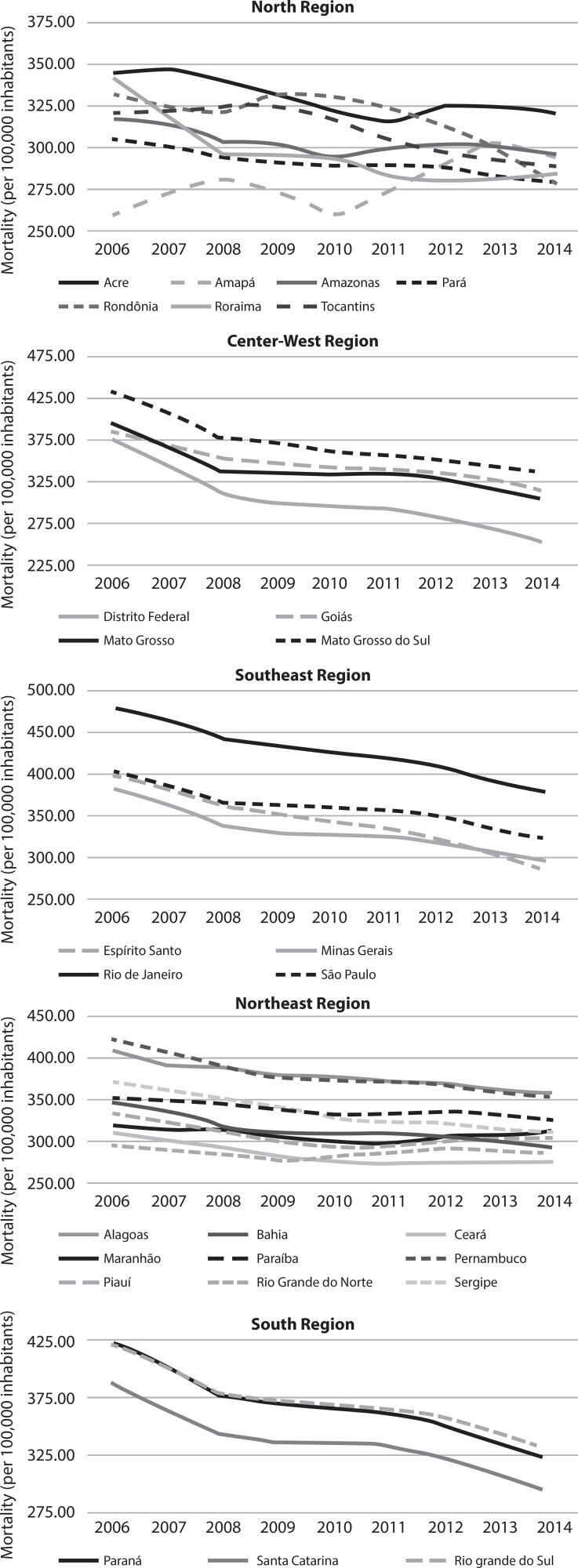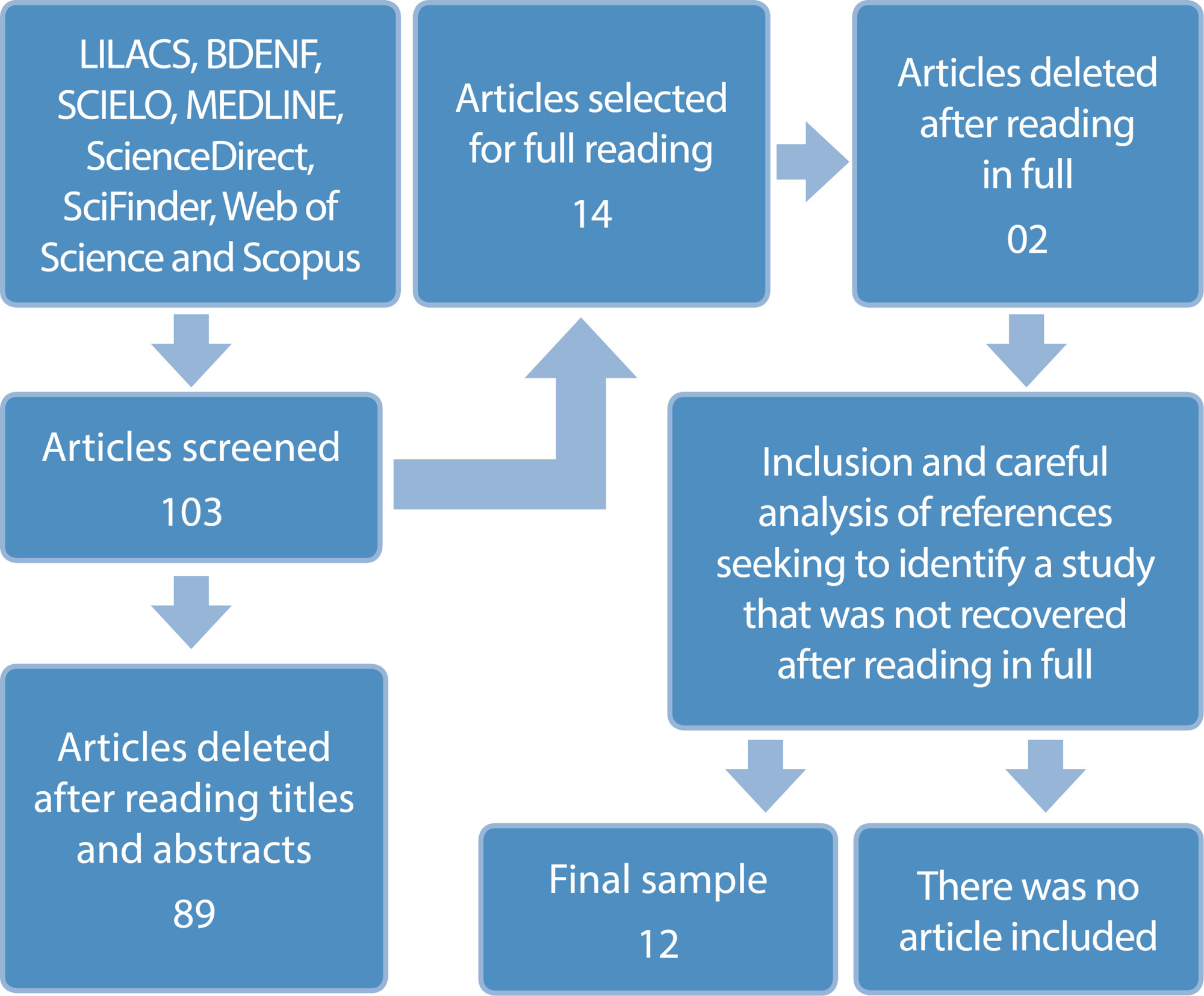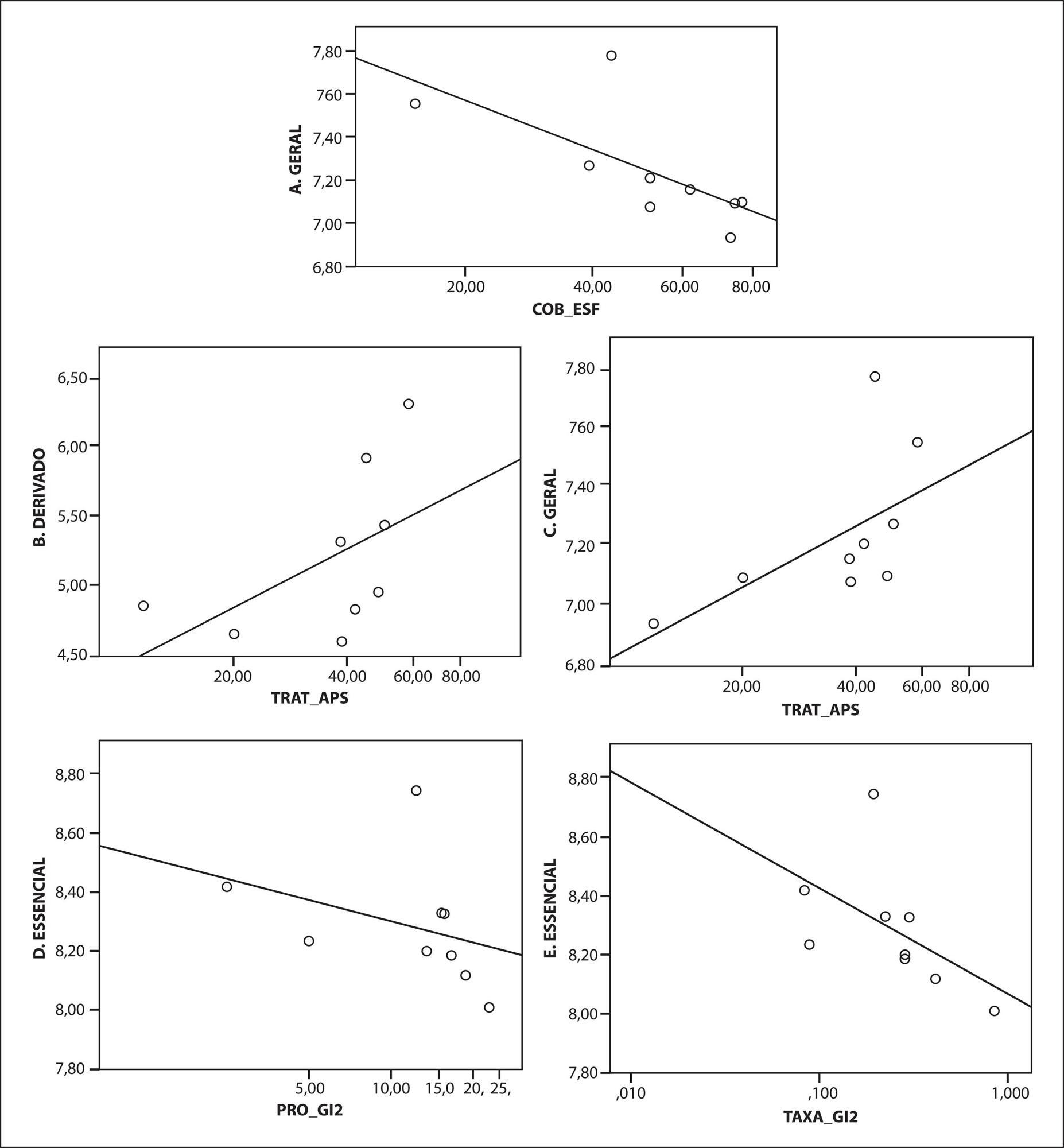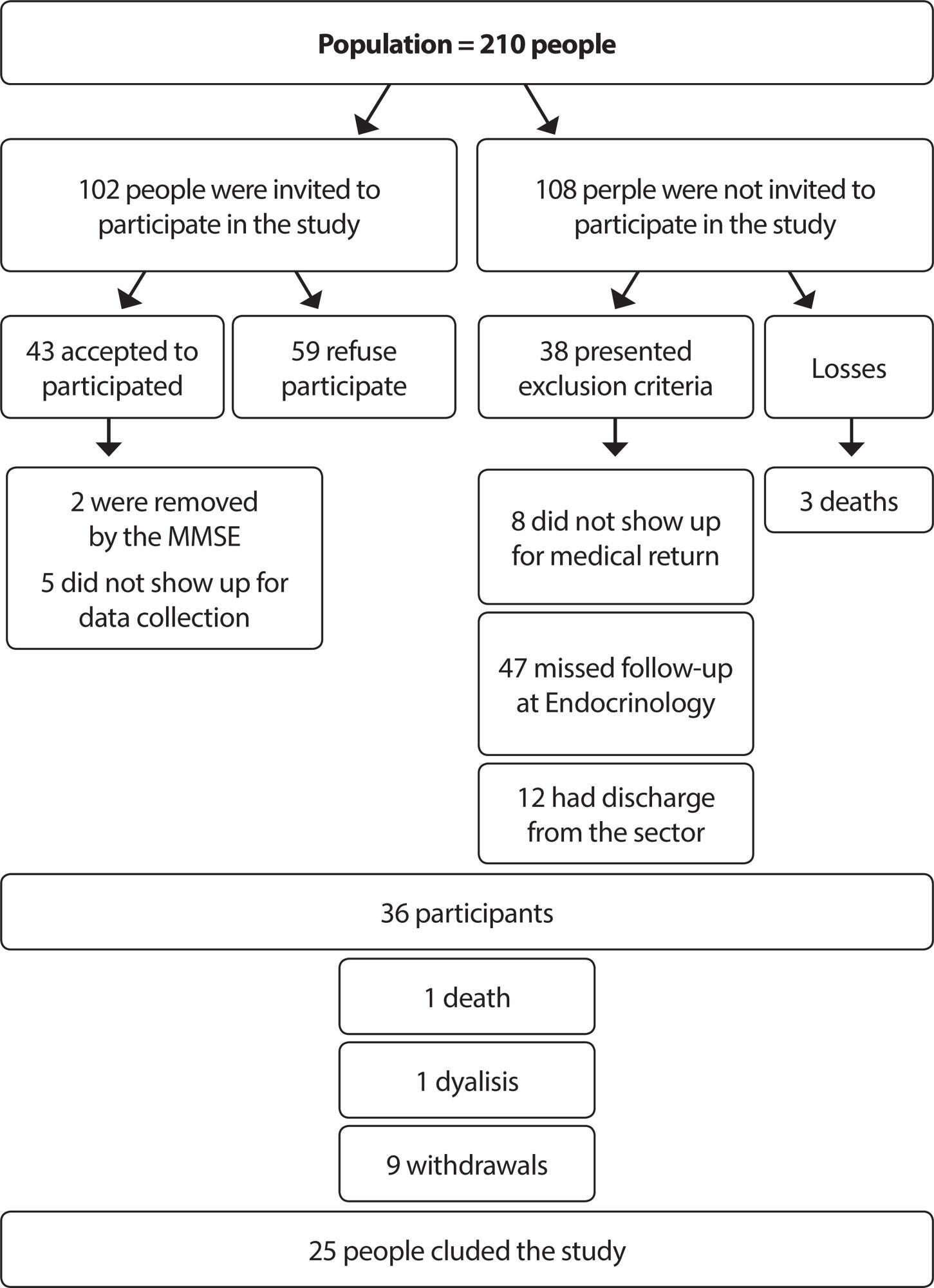-
ORIGINAL ARTICLE08-26-2024
Factors associated with COVID-19 death in pregnant women hospitalized in Intensive Care Units
Revista Brasileira de Enfermagem. 2024;77(5):e20230172
Abstract
ORIGINAL ARTICLEFactors associated with COVID-19 death in pregnant women hospitalized in Intensive Care Units
Revista Brasileira de Enfermagem. 2024;77(5):e20230172
DOI 10.1590/0034-7167-2023-0172
Views0See moreABSTRACT
Objectives:
to evaluate the factors associated with COVID-19 death in pregnant women hospitalized in Intensive Care Units in Brazil.
Methods:
this ecological study was conducted using secondary data from Brazilian pregnant women with COVID-19 hospitalized in Intensive Care Units between March 2020 and March 2022. Univariate analysis and logistic regression were employed.
Results:
out of 3,547 pregnant women with COVID-19 hospitalized in Intensive Care Units, 811 died (22.8%). It was found that lack of COVID-19 vaccination (OR: 2.73; 95% CI: 1.83; 4.04), dyspnea (OR: 1.73; 95% CI: 1.17; 2.56), obesity (OR: 1.51; 95% CI: 1.05; 2.17), chronic cardiovascular disease (OR: 1.65; 95% CI: 1.14; 2.38), and non-white race/color (OR: 1.29; 95% CI: 1.00; 1.66) were independently and significantly associated with death.
Conclusions:
it is concluded that vaccination status, presence of comorbidities, and clinical and ethnic-racial characteristics are associated with COVID-19 death in pregnant women hospitalized in Intensive Care Units in Brazil.
-
ORIGINAL ARTICLE08-26-2024
Influence of the leukoreduction moment of blood components on the clinical outcomes of transfused patients in the emergency department
Revista Brasileira de Enfermagem. 2024;77(5):e20230293
Abstract
ORIGINAL ARTICLEInfluence of the leukoreduction moment of blood components on the clinical outcomes of transfused patients in the emergency department
Revista Brasileira de Enfermagem. 2024;77(5):e20230293
DOI 10.1590/0034-7167-2023-0293
Views0See moreABSTRACT
Objectives:
to investigate the influence of the leukoreduction moment (preor post-storage) of blood components on the clinical outcomes of patients transfused in the emergency department.
Methods:
retrospective cohort study of patients aged 18 years or older who received preor post-storage leukoreduced red blood cell or platelet concentrate in the emergency department and remained in the institution for more than 24 hours. A generalized mixed-effects model was applied in the analyses.
Results:
in a sample of 373 patients (63.27% male, mean age 54.83) and 643 transfusions (69.98% red blood cell), it was identified that the leukoreduction moment influenced the length of hospital stay (p<0.009), but was not dependent on the transfused blood component (p=0.124). The leukoreduction moment had no effect (p>0.050) on transfusion reactions, healthcare-associated infections, or mortality.
Conclusions:
patients who received pre-storage leukoreduced blood components in the emergency department had a shorter length of hospital stay.

-
ORIGINAL ARTICLE08-26-2024
Leadership styles and personal values of professors at a school of nursing
Revista Brasileira de Enfermagem. 2024;77(5):e20230333
Abstract
ORIGINAL ARTICLELeadership styles and personal values of professors at a school of nursing
Revista Brasileira de Enfermagem. 2024;77(5):e20230333
DOI 10.1590/0034-7167-2023-0333
Views0See moreABSTRACT
Objectives:
to identify professors’ leadership styles and personal values.
Methods:
a quantitative, descriptive-exploratory study. Population was made up of professors in doctoral category 1 at a public university in the state of São Paulo. Data collection took place from June to August 2021. Sociodemographic characterization was extracted, and the Leadership Team Values Assessment was applied. Data were analyzed using measures of central tendency.
Results:
population included 13 professors. The level that represents authentic leadership was the most prevalent. The commitment, positive attitude and trust values stood out. The level portrayed by visionary leadership was the least identified.
Conclusions:
professors’ personal values provide a theoretical basis for guiding and analyzing professors’ leadership styles. Leadership in the educational context must be recognized and studied to promote a more comprehensive and effective approach to developing and improving educational leaders.

-
EDITORIAL08-19-2024
Sexual abuse, abortion and public health in Brazil: when moral judgment accentuates inequities
Revista Brasileira de Enfermagem. 2024;77:e77suppl0401
Abstract
EDITORIALSexual abuse, abortion and public health in Brazil: when moral judgment accentuates inequities
Revista Brasileira de Enfermagem. 2024;77:e77suppl0401
DOI 10.1590/0034-7167.202477suppl0401
Views0Here is an academic-political editorial that aims to call on the scientific field to reflect on the dangers of decisions regarding the right to abortion under moral rules, since there is no evidence that such a perspective translates into practices of care, protection of childhood and gender equity – elements that are so urgent and […]See more -
ORIGINAL ARTICLE08-19-2024
Bioethical issues in the family health strategy: Considerations for nursing care management
Revista Brasileira de Enfermagem. 2024;77:e20220818
Abstract
ORIGINAL ARTICLEBioethical issues in the family health strategy: Considerations for nursing care management
Revista Brasileira de Enfermagem. 2024;77:e20220818
DOI 10.1590/0034-7167-2022-0818
Views0See moreABSTRACT
Objective:
To understand the bioethical issues involved in the care management of nurses working in the Family Health Strategy.
Method:
A qualitative study was conducted through five focus groups with 36 nurses selected in the sample. Thematic content analysis was performed based on the bioethical framework, and the synthesis was presented in a conceptual map.
Results:
Bioethical issues were identified in the nursing care practice, related to both specific bioethical themes and the peculiarities of the work. Additionally, challenges and facilitators that interfere with addressing these issues were identified.
Final considerations:
Understanding the bioethical issues involved in the care management of nurses was possible with the theoretical support of different bioethical perspectives. The identified issues relate to persistent and current themes in the field of bioethics. However, some aspects intrinsic to daily practice are still imperceptible to professionals, contributing to the difficulty of discussing bioethics in this care model.

-
ORIGINAL ARTICLE08-19-2024
The use of individual tracking programs in public health: a bioethics dilemma
Revista Brasileira de Enfermagem. 2024;77:e20230041
Abstract
ORIGINAL ARTICLEThe use of individual tracking programs in public health: a bioethics dilemma
Revista Brasileira de Enfermagem. 2024;77:e20230041
DOI 10.1590/0034-7167-2023-0041
Views0See moreABSTRACT
Objective:
to understand the bioethical perspectives on mobile tracking device use.
Methods:
theoretical study based on action research, carried out with eight graduate students from a public university. A focus group was used, with a thematic content analysis methodology with a codebook structure, approved by the Research Ethics Committee.
Results:
from the analysis, there was a concern about using devices after the pandemic ended. Using or not the device, rights inherent to humans, legislation and effectiveness of methods deepen interpretations, moving participants from a personalistic conception of the topic to a vision focused on professional implications about the methods.
Final considerations:
the debate on the impact of using technological devices on health, especially those that imply restriction of rights that refer to individuals’ private life, involves a discussion of a professional nature, in addition to requirement for clear rules on the topic.
-
08-19-2024
Abuso sexual, aborto y salud pública en Brasil: cuando el juicio moral acentúa las inequidades
Revista Brasileira de Enfermagem. 2024;77:e77suppl0401
Abstract
Abuso sexual, aborto y salud pública en Brasil: cuando el juicio moral acentúa las inequidades
Revista Brasileira de Enfermagem. 2024;77:e77suppl0401
DOI 10.1590/0034-7167.202477suppl0401es
Views0He aquí un editorial académico-político que pretende convocar al campo científico a reflexionar sobre los peligros de decisiones sobre el derecho al aborto bajo reglas morales, ya que no hay evidencia de que tal perspectiva se traduzca en prácticas de cuidado, protección infantil y equidad de género, elementos tan urgentes y necesarios para la enfermería. […]See more -
08-19-2024
Abuso sexual, aborto e saúde pública no brasil: quando o julgamento moral acentua as iniquidades
Revista Brasileira de Enfermagem. 2024;77:e77suppl0401
Abstract
Abuso sexual, aborto e saúde pública no brasil: quando o julgamento moral acentua as iniquidades
Revista Brasileira de Enfermagem. 2024;77:e77suppl0401
DOI 10.1590/0034-7167.202477suppl0401pt
Views0Eis aqui um editorial acadêmico-político que tem como objetivo convocar o campo científico a refletir sobre os perigos das decisões relativas ao direito ao aborto sob réguas morais, uma vez que não há evidências de que tal perspectiva se traduza em práticas de cuidado, proteção à infância e equidade de gênero – elementos tão urgentes […]See more
-
06-28-2021
Baby-Friendly Hospital Initiative for Neonatal Wards: impact on breastfeeding practices among preterm infants
Revista Brasileira de Enfermagem. 2021;74:e20200909
Abstract
Baby-Friendly Hospital Initiative for Neonatal Wards: impact on breastfeeding practices among preterm infants
Revista Brasileira de Enfermagem. 2021;74:e20200909
DOI 10.1590/0034-7167-2020-0909
Views0See moreABSTRACT
Objective:
to assess breastfeeding support practices for preterm infants at two Baby-Friendly hospitals in southeastern Brazil, comparing the effect of implementing the guidelines for Baby-Friendly Hospital Initiative for Neonatal wards.
Methods:
a quasi-experimental study, pre- and post-intervention with control. Implementation of this initiative in the intervention hospital using Knowledge Translation. Data collection on compliance with the adapted Ten Steps, Three Guiding Principles and the Code before and after the intervention was carried out via interviews with mothers of preterm babies and professionals, unit observation and documentary analysis in the intervention and control hospitals. Intra-intergroup comparison was performed.
Results:
increases in global compliance with the Three Principles, Ten Steps, the Code, partial compliance with each Principle and in most Steps was greater in the intervention hospital. Conclusion: this initiative improved practices related to breastfeeding in the intervention hospital, demonstrating the potential to improve care and breastfeeding in neonatal wards.

-
REFLECTION04-22-2020
Reflections on equity and its applicability to the nursing work process
Revista Brasileira de Enfermagem. 2020;73(3):e20190783
Abstract
REFLECTIONReflections on equity and its applicability to the nursing work process
Revista Brasileira de Enfermagem. 2020;73(3):e20190783
DOI 10.1590/0034-7167-2019-0783
Views0See moreABSTRACT
Objectives:
to reflect on the principle of equity from the perspective of social justice and its applicability in the dimensions of the nursing work process.
Methods:
theoretical essay on the challenges for the practice with equity in the dimensions of the Nursing work process: teaching, care, research, political participation and administration.
Results:
the principle of equity should: in education be transversal in the training of future professionals; in assistance to occur without privilege or discrimination, treating the unequal unequally and the equals equally; in research be the target in the creation of new knowledge; in political participation to count on the contribution of social movements; and in the administration to count on the creation of specific executable policies.
Final Considerations:
there are still inequalities in access to services by part of the Brazilian population. Nursing should promote in its work process the implementation of equity promotion policies with a view to social justice.
-
ORIGINAL ARTICLE10-21-2019
Premature mortality caused by the main chronic noncommunicable diseases in the Brazilian states
Revista Brasileira de Enfermagem. 2019;72(6):1588-1594
Abstract
ORIGINAL ARTICLEPremature mortality caused by the main chronic noncommunicable diseases in the Brazilian states
Revista Brasileira de Enfermagem. 2019;72(6):1588-1594
DOI 10.1590/0034-7167-2018-0701
Views0See moreABSTRACT
Objective:
To verify the variation of the premature mortality rate caused the group of the main chronic noncommunicable diseases.
Method:
This is a time-series ecological study, which used secondary data of the Mortality Information System, from 2006 to 2014, from the 26 federal units and from the Federal District. Deaths caused by circulatory system diseases, cancer, diabetes and chronic respiratory diseases were included. The trend of adjusted mortality rate was analyzed by segmented linear regression.
Results:
Premature mortality tended to be reduced in most states, except for Maranhão and Rio Grande do Norte, which presented a stable premature mortality rate. Bahia, Pernambuco, Sergipe, Roraima and all the states from the South, Southeast and Central-West Regions reached the goal of reducing 2% per year in premature mortality caused by main diseases.
Conclusion:
Most of the states showed a reduced mortality rate and are reaching the proposed target.

-
ORIGINAL ARTICLE12-05-2019
Falls of elderly people living in rural areas: prevalence and associated factors
Revista Brasileira de Enfermagem. 2019;72:177-183
Abstract
ORIGINAL ARTICLEFalls of elderly people living in rural areas: prevalence and associated factors
Revista Brasileira de Enfermagem. 2019;72:177-183
DOI 10.1590/0034-7167-2018-0460
Views0See moreABSTRACT
Objective:
to identify the prevalence and factors associated with falls in the elderly population living in rural areas.
Method:
this is a cross-sectional study, carried out in 2014, with 820 older adults recorded in the Family Health Strategy (Estratégia Saúde da Família). The association between the reporting of falls in 12 months and their associated factors was verified by the Chi-square and Fischer’s exact tests and by multivariate logistic regression analysis.
Results:
the majority of the sample was female (56.1%), white (90.2%) and aged 60-69 years (54.9%). The prevalence of falls was 27.9%, and being female, hypertensive and diabetic was associated to falls.
Conclusion:
it is the responsibility of health professionals to have a closer look at the elderly who have these chronic diseases, especially within the scope of the Family Health Strategy, which works longitudinally with these patients, in addition to improving nursing care aimed at this population.
-
REVIEW05-28-2021
Biological activities: anti-infectious, antioxidant and healing of the vegetable species Jatropha multifida
Revista Brasileira de Enfermagem. 2021;74(2):e20200451
Abstract
REVIEWBiological activities: anti-infectious, antioxidant and healing of the vegetable species Jatropha multifida
Revista Brasileira de Enfermagem. 2021;74(2):e20200451
DOI 10.1590/0034-7167-2020-0451
Views0See moreABSTRACT
Objective:
to investigate the biological activities of interest to the health of Jatropha multifida plant species in published scientific literature.
Methods:
this is an integrative review, with searches between May and June 2019, using the descriptors, combined through the Boolean operator AND, Jatropha multifida, anti-infective agents, wound healing, cytotoxicity and antioxidants, in LILACS, BDENF, MEDLINE, SciFinder, Web of Science and Scopus databases and in the virtual libraries SciELO and ScienceDirect.
Results:
twelve publications were retrieved that showed nine biological activities. The antioxidant activity was reported in 04 (33.33%) studies; antimicrobial and anticancer, addressed by 03 (25%) and 02 (16.66%); anti-inflammatory, anti-melanin deposition, healing, antiophidic, purgative and anti-influenza, seen in 01 (8.33%) each.
Final considerations:
although scarce, the published scientific production highlights the biological potential of J. multifida and supports the need for further studies.

-
ORIGINAL ARTICLE06-01-2020
Primary care quality and its effects on leprosy monitoring indicators
Revista Brasileira de Enfermagem. 2020;73(4):e20190038
Abstract
ORIGINAL ARTICLEPrimary care quality and its effects on leprosy monitoring indicators
Revista Brasileira de Enfermagem. 2020;73(4):e20190038
DOI 10.1590/0034-7167-2019-0038
Views0See moreABSTRACT
Objectives:
to evaluate the quality of primary care in leprosy control actions, to correlate effects on monitoring indicators.
Methods:
a cross-sectional study, conducted in Belo Horizonte, from July to September 2014. Interviews with 408 professionals were conducted through the application of a tool that assesses attributes of primary care in leprosy control actions, and monitoring indicators were calculated. Spearman correlation was used, significance level p < 0.05.
Results:
the overall score correlated with the percentage of cases treated in primary care and of family health staff coverage. The derived score correlated with the percentage of cases treated in primary care, and the essential score correlated with the proportion and rate of cases diagnosed, with grade 2 physical disability.
Conclusions:
the quality of leprosy control actions performed by primary care professionals produces impacts on health indicators, and developing strategies consistent with the reality of the territory is necessary.

-
ORIGINAL ARTICLE10-21-2019
Education in Diabetes Mellitus for blood glucose self-monitoring: a quasi-experimental study
Revista Brasileira de Enfermagem. 2019;72(6):1601-1608
Abstract
ORIGINAL ARTICLEEducation in Diabetes Mellitus for blood glucose self-monitoring: a quasi-experimental study
Revista Brasileira de Enfermagem. 2019;72(6):1601-1608
DOI 10.1590/0034-7167-2018-0731
Views0See moreABSTRACT
Objective:
to evaluate the contributions of an educational program for capillary blood glucose self-monitoring.
Method:
a quasi-experimental study performed in an outpatient unit of a tertiary health care service in a sample of 25 people with Type 2 Diabetes Mellitus, from July 2016 to December 2017, developed through interactive tools for care with capillary blood glucose self-monitoring.
Results:
among the items of capillary blood glucose self-monitoring that showed improvement after participation in the educational program, the most noteworthy are the “postprandial blood glucose values” (p=0.0039), “Interpretation of capillary blood glucose results with meals and medications” (p=0.0156), “recognition of the ‘weakness’ symptom for hyperglycemia” (p=0.0386) and “administration of medications correctly” for hyperglycemia prevention (p=0.0063).
Conclusion:
the study made it possible to recognize the main characteristics of blood glucose self-monitoring that may contribute to the care for the person with diabetes.

-
ORIGINAL ARTICLE06-01-2020
Nursing entrepreneur care in social inequity contexts
Revista Brasileira de Enfermagem. 2020;73(4):e20190014
Abstract
ORIGINAL ARTICLENursing entrepreneur care in social inequity contexts
Revista Brasileira de Enfermagem. 2020;73(4):e20190014
DOI 10.1590/0034-7167-2019-0014
Views0See moreABSTRACT
Objectives:
to identify emancipatory strategies to strengthen the social protagonism of recyclable materials collectors in the light of entrepreneurial Nursing care.
Methods:
qualitative study carried out in two stages: field approach from healthcare interventions in a Recycling Materials Association, and individual interviews conducted between October and December 2018.
Results:
the analysis resulted in three thematic categories: Social contribution of recyclable materials collectors; From the assistentialist perception to entrepreneurial Nursing care; Emancipatory strategies of recycling work.
Final Considerations:
the emancipatory strategies to strengthen the social protagonism of recyclable materials collectors in the light of entrepreneurial Nursing care are related to the appreciation, recognition and enhancement of social work that has been already performed by these professionals, and to the creation of spaces for the socialization of experiences, expectations and perspectives.
Search
Search in:
Nuvem de Tags
Adolescente (85) Atenção Primária à Saúde (239) COVID-19 (91) Criança (91) Cuidados de Enfermagem (269) Educação em Enfermagem (151) Educação em Saúde (139) Enfermagem (930) Enfermagem Pediátrica (86) Estudantes de Enfermagem (77) Estudos de Validação (131) Família (87) Idoso (208) Promoção da Saúde (99) Qualidade de Vida (104) Saúde do Trabalhador (86) Saúde Mental (145) Saúde Pública (82) Segurança do Paciente (150) Tecnologia Educacional (100)



